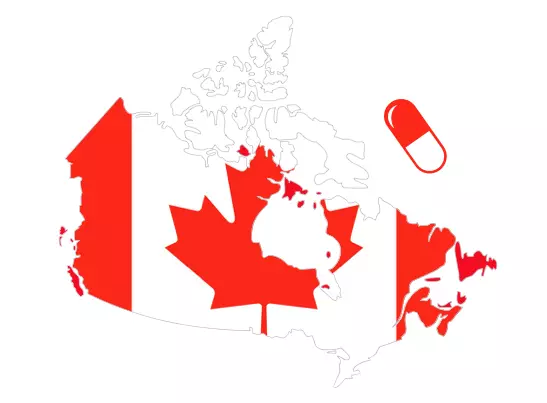Online Pharmacies: Everything You Need to Know
It’s an unfortunate truth that many people don’t have adequate prescription drug insurance. Whether there’s a lack of insurance altogether or a lack of prescription coverage specifically, people often pay out of pocket to obtain needed medications. Yet prescription prices without insurance are so high that individuals sometimes face a choice between medication and other basic necessities. Additionally, individuals who have difficulty visiting a local pharmacy and who rely on others to help may feel dependent and vulnerable.
It’s no surprise, then, that people turn to online and mail-order pharmacies to purchase low-cost prescriptions. eDrugSearch makes this process easier by using a rigorous screening process that ensures the quality and safety of every pharmacy listed on this site. Each one meets the highest standards and is as safe as any well-known U.S. corner drugstore.
Yet even with eDrugSearch doing the legwork, learning a few things about online and mail-order pharmacies will help you choose with confidence.

Benefits and Risks of Online Prescriptions
Mail-order and online pharmacies offer great benefits, but it’s a wise consumer who understands the risks as well.
The Upside
- Low-cost prescriptions: Without the overhead of brick-and-mortar stores, online pharmacies can offer better prices. Discount pharmacies and wholesalers reduce prices even further, and pharmacies in Canada and other countries often have better prices than the U.S. does due to differing national health care policies.
- Convenience: Many people find it difficult to visit the local pharmacy. Whether they are incapacitated with an injury or illness, reside far from business centers or simply don’t have time due to busy schedules, ordering online is often more convenient.
- Anonymity: Health is a very personal subject, and some people feel more comfortable when minimizing face-to-face interaction. This makes online ordering very appealing. However, it’s extremely important to choose online and mail-order pharmacies that protect you with strong privacy policies and safeguards.
- Medical Resources: Some online sites may offer detailed drug facts, drug interaction guides, reports about diseases and links to authoritative agencies with additional information.
The Downside
- Changing Prices: Introductory prices may not apply to repeat customers, and online pharmacies often change rates as a matter of practice. eDrugSearch always has the most current price information for all the pharmacies we list.
- Additional Fees: Be sure to check online and mail-order pharmacies for additional fees added on top of attractive prescription prices. These might include ordering fees, account fees, consultation fees and, of course, shipping costs.
- Shady Practices: Some online pharmacies don’t require prescriptions; they don’t provide contact information, such as an address or phone number; they don’t have adequate licensing; and they sell unauthorized controlled substances that can be harmful or addictive. They also sell other drugs that can be highly dangerous without a doctor’s supervision. These restricted-distribution drugs include Clozaril, Accutane and Lotronex, among others, and should never be purchased online.
eDrugSearch prequalification procedures help eliminate disreputable pharmacies that endanger patient health.
Types of Online Pharmacies
Part of what makes an online pharmacy trustworthy is the type of prescriptions they accept.
There are typically three levels:
- Traditional Prescriptions: Mail-order and online pharmacies that insist on traditional prescriptions are the safest, most reliable choices. They require an original doctor’s order issued after an in-person patient visit. These are often large, national providers or mail-order centers that carry a full stock of prescription drugs, and they usually have the lowest prices due to their high volume of business.
- Remote-Consultation Prescriptions: Online pharmacies that conduct remote consultations can be equally safe and reliable, especially for milder, lifestyle medications. Individuals submit relevant medical information, and a physician associated with the pharmacy reviews it to determine whether or not a prescription is appropriate. If so, the pharmacy fills the order. U.S. federal law forbids prescriptions for addictive, controlled substances through remote consultation. Additionally, remote prescriptions are entirely illegal in some states while others allow them only for non-controlled drugs. It’s important to know local laws before choosing this type of pharmacy.
- No Prescription Required: Pharmacies in the U.S. that sell controlled substances must have a specific license to do so from the U.S. Drug Enforcement Agency (DEA). Furthermore, the Ryan Haight Act of 2008 requires patients to have an in-person exam before prescriptions for controlled substances can be filled through online and mail-order pharmacies. Yet there are “rogue” pharmacies that fill orders for any type of drug without a prescription or even a consultation.
These unethical businesses can be dangerous not only in providing addictive substances without a license or a doctor’s guidance, but also because the drugs they provide may be counterfeit; patients never know if what they receive will be the correct strength or if it is even what they actually ordered.
Additional Online Pharmacy Classifications
The volume and types of drugs that online and mail-order pharmacies carry further classify them. These include:
- Full service: Carries all types of prescription medications, over-the-counter products, testing supplies, and non-medical supplies such as health and beauty items.
- 500+: Carries most prescription drugs that a local pharmacy carries.250-499: Carries drugs requested in the majority of prescriptions.
- Lifestyle: Carries drugs that might be considered optional, including contraception, sexual enhancement, weight loss, hair growth and smoking control drugs.
- Popular: Carries only the most-requested prescription medications; may be limited to 10 to 50 different drugs.
- Specialized: Carries medications intended for very specific conditions rather than a wide range of products.
Rogue Online Pharmacies
Rogue online pharmacies are websites that deliberately sell inferior, fake or unlicensed medication. Rogue Web-based pharmacies may also sell legitimate, regulated medications; however, these pharmacies do not use certain safeguards to protect patients’ health. Anyone who takes unsuitable prescription medication puts themselves at risk of serious illness or death. Therefore, it is imperative to only fill genuine prescriptions.
Pharmacy Consultations
Numerous rogue online pharmacies disguise themselves as legitimate pharmacies by offering substandard consultations. These consultations, which come at a cost to the patient, are conducted in order to fill a prescription that the pharmacy claims is written by a licensed physician. Although there are some websites that offer safe and secure remote consultations, rogue pharmacies use
supposed consultations to create the illusion of patient safety.
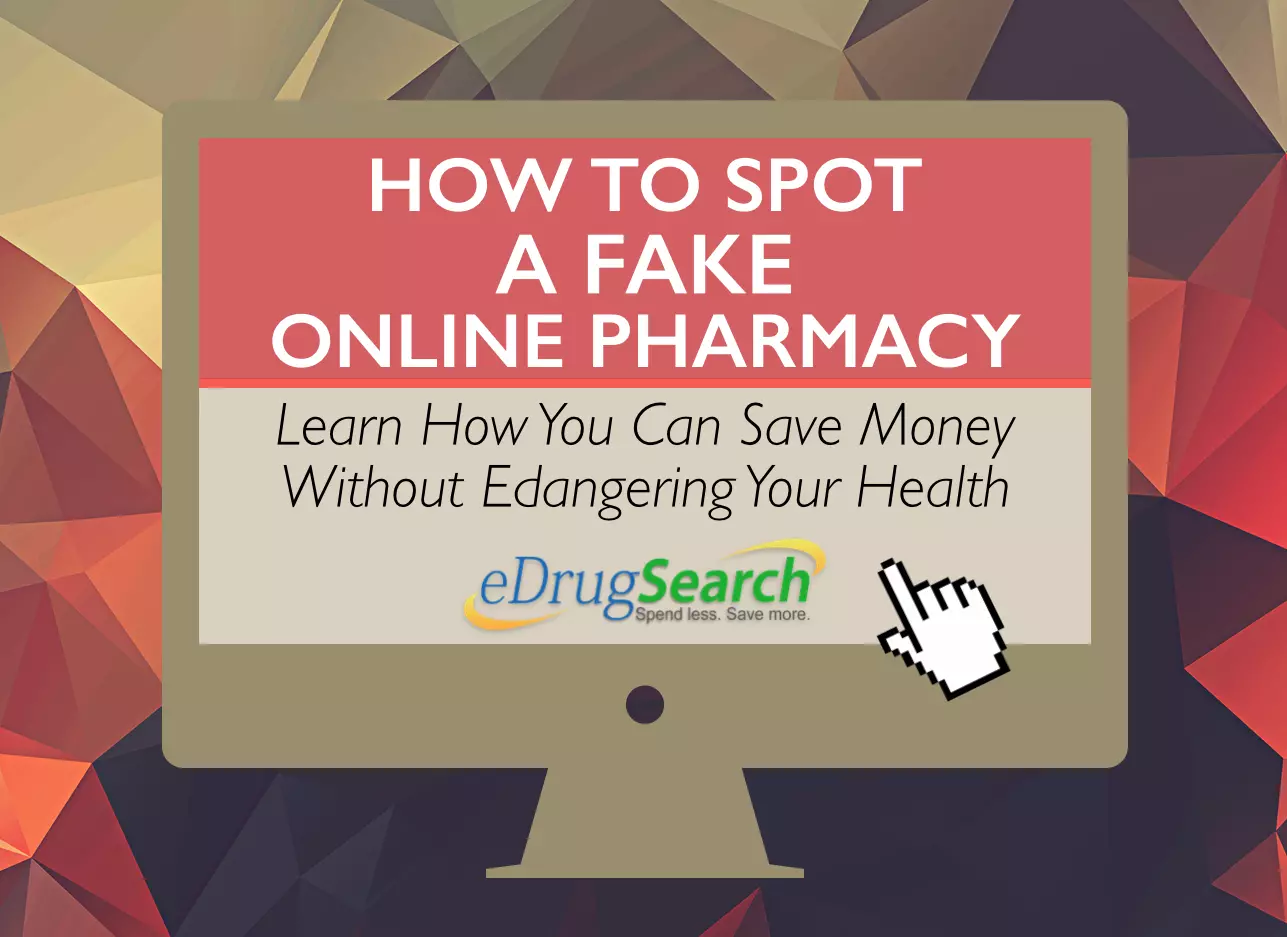
Indicators of a Rogue Online Pharmacy
There are several warning signs that a pharmacy is considered rogue. The main indicators of a rogue pharmacies are those that do not:
- Hire a licensed pharmacist to dispense prescriptions.
- Keep patients’ financial and medical information secure.
- Publish pertinent, verifiable contact information on their site.
- Require a prescription.
- Sell genuine medications.
- Use licensed pharmacies to fill prescriptions.
Verify Online Pharmacies on eDrugSearch.com
According to the National Bureau of Economic Research, consumers who used Web-based pharmacies certified by sites such as eDrugSearch.com always receive legitimate medications, unlike those who choose to use pharmacies deemed as rogue. Only use pharmacies that are verified by eDrugSearch.com in order to avoid filling prescriptions with rogue pharmacies. You may also research an online pharmacy through reputable organizations like the Canadian International Pharmacy Association (CIPA), in partnership with the Canadian Anti-Fraud Centre (CAFC), which continues to aggressively monitor and pursue rogue online pharmacies. VIPPS, or Verified Internet Pharmacy Practice Sites, which operates through the National Association of Boards of Pharmacy, or NABP.
However, VIPPS only checks the credentials of U.S.-based pharmacies. Since consumers tend to use pharmacies in foreign countries, which often offer the lowest prices, eDrugSearch.com verifies the credentials of not only U.S. pharmacies, but also foreign pharmacies.
Online Pharmacy Verification
Legitimate online pharmacies and other countries will not ship controlled substances to U.S. residents. It’s the policy of eDrugSearch.com’s strict online pharmacy license verification guidelines only list online and mail-order pharmacies that pass strict screening requirements, ensuring government and home-country licensing as well as accreditation by third-party associations. Additionally, this site only lists pharmacies that require traditional prescriptions.
Having third-party verifications adds to the legitimacy of online sites, and there are several agencies in the U.S. and Canada that offer seals of approval. These include the Better Business Bureau Online (BBBOnline), the Canadian International Pharmacy Association (CIPA), Internet Mail-Order Pharmacy Accreditation Commission (IMPAC), Verified Internet Pharmacy Practice Sites (VIPPS), the (NCPA) and the Manitoba International Pharmacists Association (MIPA).
Contact information is available on the Pharmacy Licensing page on this site.
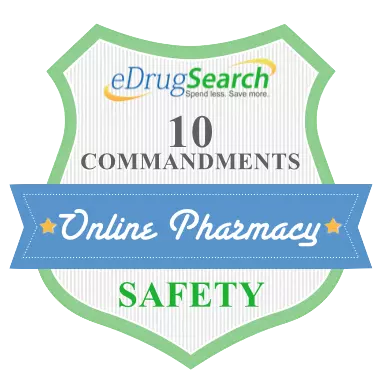
Legality of Ordering Prescription Drugs Online
It’s technically illegal for U.S. residents to order prescriptions online from other countries. That said, U.S. Customs officers do not presently intercept prescription drug packages mailed from Canada. Also, a handful of states have initiated programs to help residents order prescriptions from other countries. However, there are still a few guidelines to help prevent penalties and make sure an online order goes through:
- Provide an original prescription.
- Don’t attempt to order controlled substances or drugs designated as Schedule IV medications.
- Only order a three-month supply or less.
Here is the FDA’s personal drug importation guidelines. It’s important to know that the FDA has NEVER prosecuted anyone for uses the guidelines above for their personal drug importation.
Watch Marcia Crosse, PhD — the director for the Health Care Team at the U.S. Government Accountability Office (GAO) — explain the FDA’s personal drug importation policies:
U.S. Pharmacies Versus Other Countries
While ordering from mail-order and online pharmacies in other countries can be beneficial for people without prescription insurance coverage, U.S. residents ordering from U.S. online pharmacies may enjoy these benefits:
- Lower generic prices
- Lower shipping charges
- Easier legal recourse if needed
- Prescription drug insurance acceptance
Using eDrugSearch to compare online pharmacies and their prices is always smart. It provides the kind of information that lets you purchase online prescriptions in safety and confidence.
U.S. Pharmacy Regulation
The United States has strict controls that help maintain the safety of prescription drugs, including those from online and mail-order pharmacies.
- The Food and Drug Administration (FDA) oversees the U.S. drug supply, granting initial approvals after controlled clinical trials; taking feedback once drugs are on the market; and issuing recalls where evidence comes to light of unsafe medications.
- The Drug Enforcement Agency (DEA) regulates controlled substances and issues licenses to pharmacies that sell them.
- Individual states handle the regulation and licensing of both pharmacists and pharmacies. Though state regulations differ slightly, having a licensed pharmacist on-site and having controlled storage and drug-dispensing practices are common in all U.S. pharmacies.
All of this input helps ensure that U.S. pharmacies dispense drugs correctly and that patient health is protected. The lower cost of prescriptions from other countries isn’t reason enough to abandon safety. Knowing a bit about how other countries regulate medications will help you determine which international online and mail-order pharmacies are likely to equal the safety of U.S. pharmacies.
Remember, it’s technically illegal to import prescription medication of any kind. The FDA generally allows personal use in limited supply, but seizure of international orders does occur. Prescriptions from non-Canadian countries and especially from still-developing nations are targeted most frequently; however, order seizures from online and mail-order pharmacies equal less than one percent of all personal drug imports.
Guidelines for Choosing International Mail-Order and Online Pharmacies
Numerous countries have entered the international prescription market and now sell to Americans. Each country has slightly different practices, but pharmaceutical safety still requires strict monitoring and controls. The following should be in evidence for all online and mail-order pharmacies:
- An overseeing agency equivalent to the FDA that requires scientific results from clinical trials prior to approving drugs and that also monitors drugs for ongoing safety.
- National standards and laws related to labeling and distribution of pharmaceuticals.
- National, state or province systems that oversee pharmacies, inspecting them regularly and requiring strict safety guidelines for handling and dispensing drugs.
- Laws that ensure pharmacists have superior education and training.
- Laws that require a doctor’s prescription for medications not sold to the general public.
- Following Good Manufacturing Practices (GMP) when producing prescription drugs.
Overview of International Pharmaceutical Practices:
Australian Online Pharmacies
Australia follows the same policies for regulating prescription drugs that the European Union (EU) does. The Therapeutic Goods Administration oversees drug products nationally while each state or territory regulates its own pharmacies and registers its pharmacists.
State boards belong to the Pharmaceutical Society of Australia, an incorporated federation that directs policies and regulations for safe pharmacy practices.
More than 80 percent of individual pharmacies belong to the Pharmacy Guild of Australia. The Guild keeps members informed about current pharmacy issues; supports education and workplace relations; and works closely with governments, manufacturers and others involved in delivering safe health care systems.
Helpful Links
- Therapeutic Goods Administration, Department of Health and Aging: http://www.tga.gov.au
- The Pharmacy Guild of Australia: http://www.guild.org.au/
- The Pharmaceutical Society of Australia: http://www.psa.org.au/
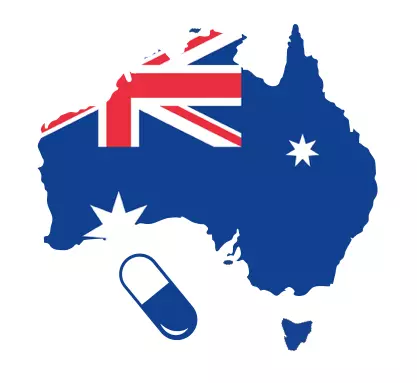
Barbadian Online Pharmacies
Barbados grants licenses to qualified companies to act as online and mail-order pharmacies under the following conditions:
- They pass inspection by the Barbados Drug Service, which is part of the Barbados Ministry of Health.
- They meet regulations in the Pharmacy and Drug Services Act.
- There is a licensed pharmacist on-site who oversees medication-dispensing practices.
Online and mail-order pharmacies in Barbados function within a free-trade zone but are subject to the pharmacy regulations of their home jurisdictions. Even so, the drugs dispensed by these free-trade pharmacies come from outside of the national, regulated drug supply.
eDrugSearch only approves mail-order and online pharmacies that meet strict licensing regulations, which includes wholesalers who export drug products to free-trade businesses.
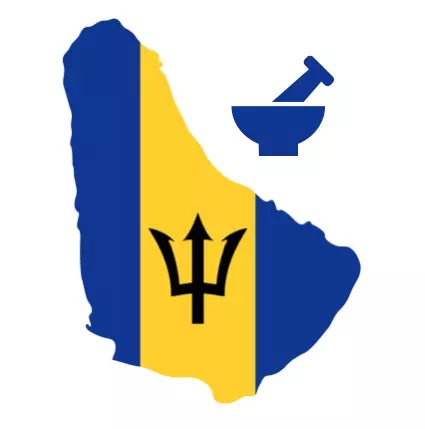
Canadian Online Pharmacies
Canadian pharmacies are popular sources for prescriptions because their practices closely resemble those in the U.S. The Therapeutic Products Directorate oversees all drugs nationally and issues drug approvals. Each province regulates its pharmacies, and all require the following:
- Licensing by the province’s pharmacy board
- Site management by a licensed pharmacist
- Strict standards for storing and distributing medications
Helpful Links
- The National Association of Pharmacy Regulatory Authorities (NAPRA): http://www.napra.org/pages/home/default.aspx
- Health Canada: http://www.hc-sc.gc.ca/index-eng.php
Curaçao Online Pharmacies
Curacao’s policy for online and mail-order pharmacies is similar to that of Barbados. Pharmacies that receive approval for international operation fall under the regulation of the Inspectorate of Public Health and the Inspector of Pharmaceutical Affairs. Additionally, licensed pharmacists must manage all drug-dispensing practices.
Curacao’s online and mail-order pharmacies function within a free-trade zone, subject to the same regulations as pharmacies in their home jurisdictions, but they obtain prescription medications from outside of the national, regulated drug supply.
eDrugSearch only approves online and mail-order pharmacies that meet strict licensing regulations, which includes wholesalers who export drug products to free-trade businesses.
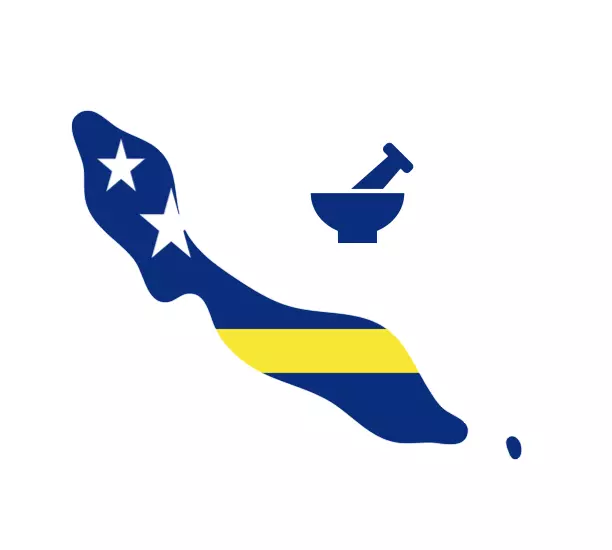
Indian Online Pharmacies
India has policies similar to the U.S., including pharmacy management by a licensed pharmacist, safe storage practices and protecting controlled substances. The Central Drugs Standards Control Organization is the main pharmacy governing body, and it has several duties:
- Approve new drugs that enter the market and regulate existing ones.
- Follow ongoing usage of prescription drugs to ensure safety.
- Carry out actions that protect the drug supply.
- Regulate pharmacies through State Drug Control Offices, including inspections, licenses and enforcement of strict safety policies.
Although India produces a large portion of active drug ingredients used around the world, and the U.S. FDA inspects many manufacturing plants there, regulation enforcement and control of the drug supply in India is sometimes below U.S. standards. This can lead to a higher incidence of counterfeit drugs. eDrugSearch requires the same rigorous standards from India’s online and mail-order pharmacies as it does for U.S. or Canadian pharmacies.
Helpful Links
- Central Drugs Standards Control Organization: http://cdsco.nic.in/
- Pharmacy Council of India: http://pci.nic.in/
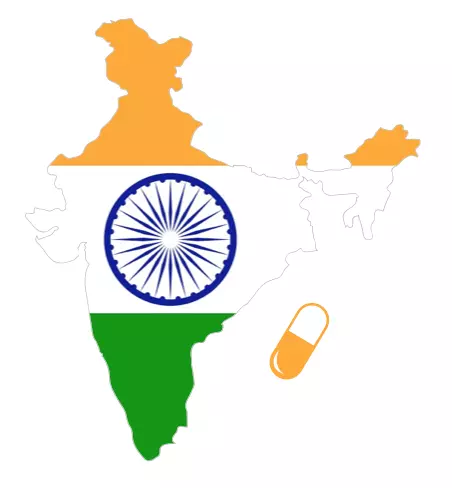
Israeli Online Pharmacies
The Israeli Ministry of Health’s Pharmaceutical Division oversees all regulations regarding prescription drugs and the licensing of pharmacies and pharmacists. The country strongly follows both U.S. and EU practices, including FDA or equivalent EU standards and GMP for all drug production. Israel’s pharmaceuticals typically receive approval for use in the U.S. and the EU; they are a major supplier of generic drugs for the U.S.
Helpful Links
- Israeli Ministry of Health: http://www.health.gov.il/english/Pages/HomePage.aspx
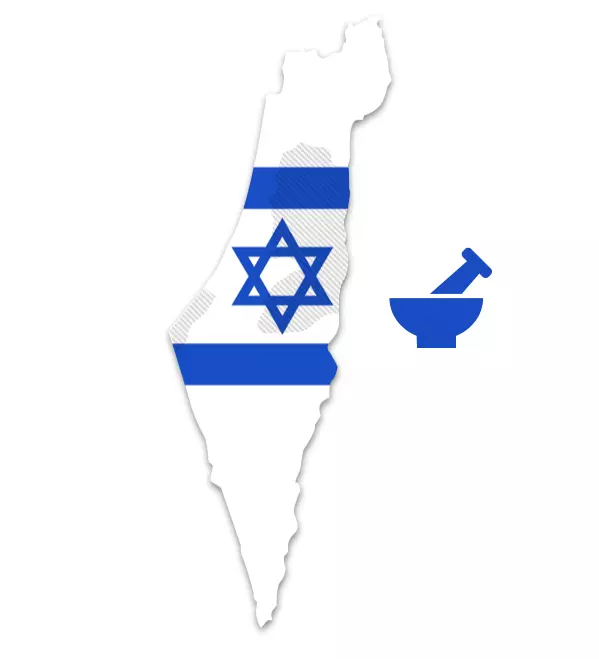
Italian Online Pharmacies
As part of the EU, Italy has highly developed pharmacy standards. The Drug Regulatory Authority approves drugs only after rigorous clinical trials prove safety and usefulness. The European Medicines Evaluation Authority (EMEA), an EU agency, also evaluates drug safety and approves medications for use throughout the Union.
Only pharmacists can own pharmacies in Italy, and they are subject to strict regulations concerning prescriptions, drug storage and drug dispensing that are equivalent to U.S. policies.
Helpful Links
- Federfarma: http://www.federfarma.it/
- Italian Ministry of Health: http://www.salute.gov.it/indexEnglish.jsp
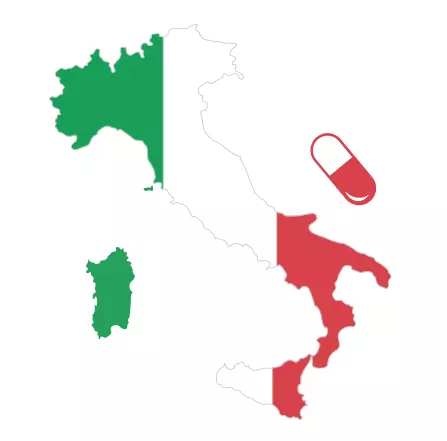
New Zealand Online Pharmacies
Medsafe is New Zealand’s equivalent to the FDA, and it oversees the approval and monitoring of drugs within the country. Medsafe also licenses pharmacies, which it holds to high standards equal to U.S. and Canadian practices. The Pharmacy Council regulates and licenses pharmacists, and the Pharmaceutical Society of New Zealand ensures pharmacists’ high levels of education and training.
Helpful Links
- Medsafe: http://www.medsafe.govt.nz
- Pharmaceutical Society of New Zealand: http://www.psnz.org.nz/public/home/index.aspx
- Pharmacy Council: http://www.pharmacycouncil.org.nz/index.asp
- Pharmacy Guild of New Zealand: http://www.pgnz.org.nz/
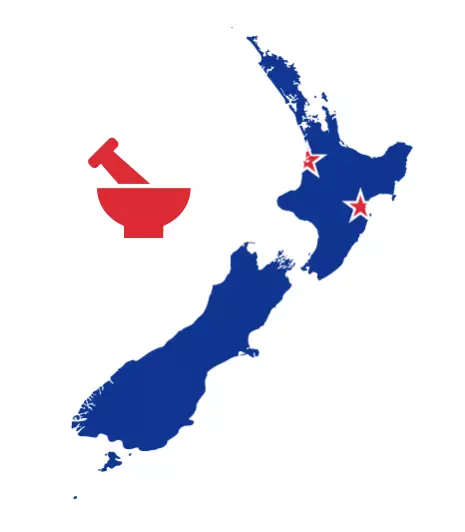
Singaporean Online Pharmacies
The World Health Organization Collaborating Centers has recognized Singapore for its drug quality assurance. The country has rigorous pharmacy practices and regulations equal to the U.S., Canada and the EU.
The Health Sciences Authority regulates pharmacies and ensures safe storage facilities and dispensing equipment. It also verifies adequate recordkeeping practices and the presence of professional reference materials. Licensed pharmacists, who must register with the Singapore Pharmacy Council, manage all pharmacies.
The Therapeutics Products Division regulates all drug products while the Health Products Regulation Group licenses and approves drugs. Approval takes nine months unless a drug has already been approved in the U.S., EU or Australia; this expedites the process.
Some pharmacies also operate as exporters, but the Therapeutics Products Division doesn’t guarantee their safety. eDrugSearch will not approve online and mail-order pharmacies that don’t meet high safety standards.
Helpful Links
- Health Sciences Authority: http://www.hsa.gov.sg/publish/hsaportal/en/health_products_regulation/GMP/audit_licensing_pharmacies/certificate_of_registration.html
- Singapore Pharmacy Council: http://www.healthprofessionals.gov.sg/content/hprof/spc/en.html
- Pharmacy Council: http://www.pharmacycouncil.org.nz/index.asp
- Therapeutics Products Division: http://www.hsa.gov.sg/publish/hsaportal/en/health_products_regulation/western_medicines.html
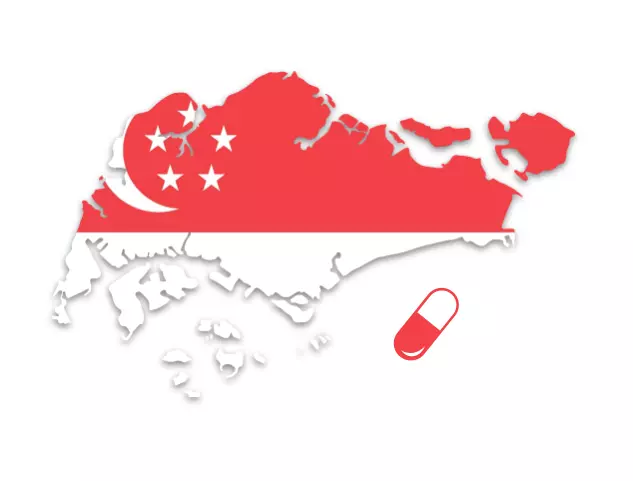
South African Online Pharmacies
South Africa’s Medicines Control Council oversees the country’s pharmaceutical supplies, and approvals are based on scientific evidence from clinical trials. The South African Pharmacy Council (SAPC) licenses pharmacies and requires licensed pharmacists to manage the drug supply on-site. This includes the attainment of medications and other chemical substances as well as their storage. Pharmacists also control public access to drugs and pharmacy cleanliness. The SAPC also fosters high standards of education and career development for pharmacists.
Helpful Links
- Medicines Control Council: http://www.mccza.com/
- South African Pharmacy Council: http://www.pharmcouncil.co.za/
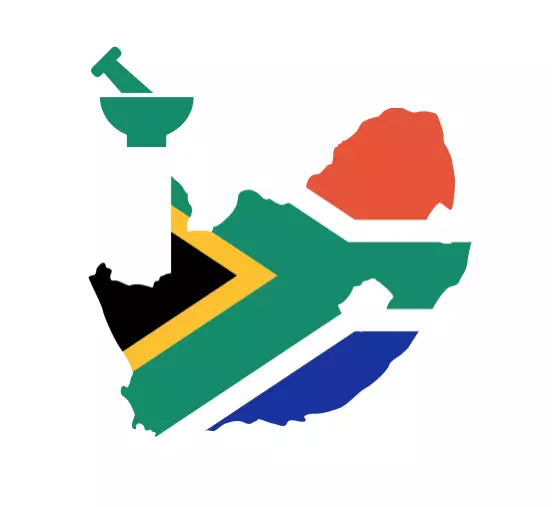
Swiss Online Pharmacies
Swiss Medic oversees the national regulation and approval of all pharmaceuticals in Switzerland. As it does for all EU nations, the EMEA also approves drugs for use in Switzerland. Both of these agencies’ standards are equivalent to those found in the U.S.
Switzerland’s cantons, which are comparable to U.S. states, license and regulate pharmacies in their respective regions. They require licensed pharmacists to manage pharmacies and oversee all dispensing practices.
Helpful Links
- Swiss Medic: http://www.swissmedic.ch/
- The European Medicines Agency: http://www.ema.europa.eu/ema/
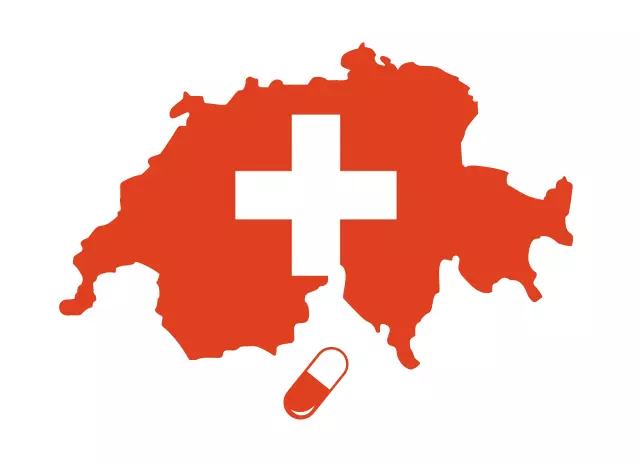
Turkish Online Pharmacies
The World Health Organization reports that Turkey follows drug-licensing practices equal to those in the EU. The Drugs and Pharmacy General Management agency approves drugs for use in the country, and the Advisory Commission for the Registration of Medicinal Products for Human Use guides the approval process.
Turkey has first-class manufacturing facilities, and the country is rising as a world supplier of pharmaceutical products. National mandates require licensed pharmacists to be on-site during operating hours and for pharmacies to have safe storage equipment as well as clean dispensing facilities. However, unregistered drug products are a problem in some rural and eastern regions of the country. For this reason, eDrugSearch does not consider online and mail-order pharmacies in these areas to be safe.
Helpful Links
- World Health Organization — Regional Office For Europe: http://www.euro.who.int/en/home
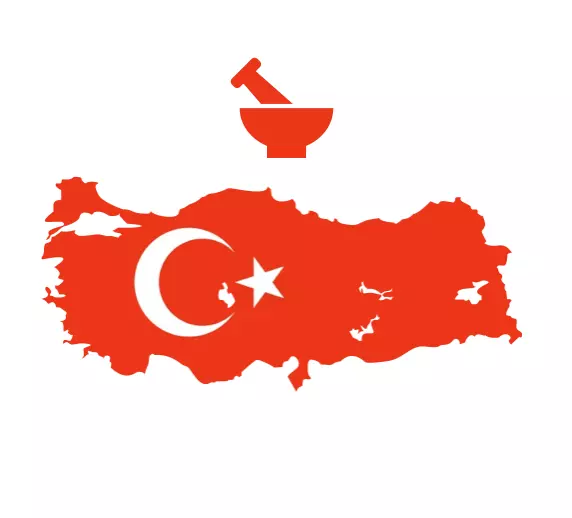
United Kingdom Online Pharmacies
The Medical and Healthcare Products Regulatory Agency and the EMEA of the EU regulate and approve drugs for use in the United Kingdom; standards in the UK equal standards in other EU nations.
The General Pharmaceutical Council regulates and licenses both pharmacies and pharmacists, and both individuals and businesses must register with this council. Licensed pharmacists operate pharmacies, and they are required to provide safe storage facilities and maintain clean dispensing areas.
Helpful Links
- Medical and Healthcare Products Regulatory Agency (MHRA): http://www.mca.gov.uk/
- The European Medicines Agency: http://www.ema.europa.eu/ema/
- General Pharmaceutical Council: http://www.pharmacyregulation.org/registration/registration-pharmacy-premises
- Royal Pharmaceutical Society of Great Britain: http://www.rpharms.com/home/home.asp
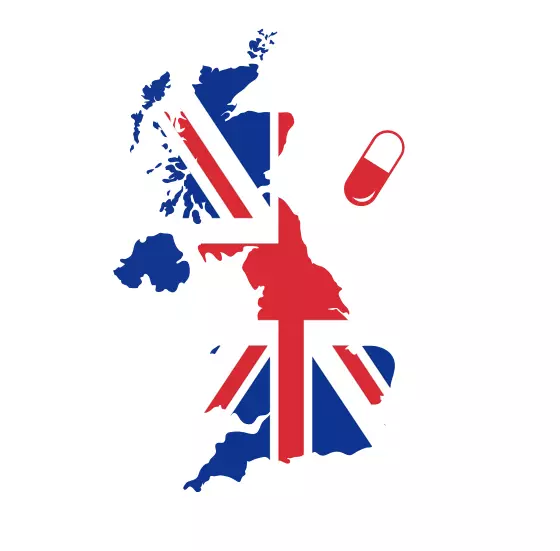
More on Counterfeit Medications
Counterfeit medications are a worldwide problem and pose real danger to anyone who takes them. These drugs may have incorrect, ineffective or dangerous ingredients. They may not contain any active ingredients at all, or they may have insufficient quantities of active components. They may also be packaged incorrectly.
Buying prescriptions from online and mail-order pharmacies in developing countries, or from those with inadequate safety regulations, increases the risk of receiving counterfeit products. Sites that don’t publish contact information are more likely to be unethical and should be avoided. eDrugSearch will not approve pharmacies that don’t post a physical address or other contact details.
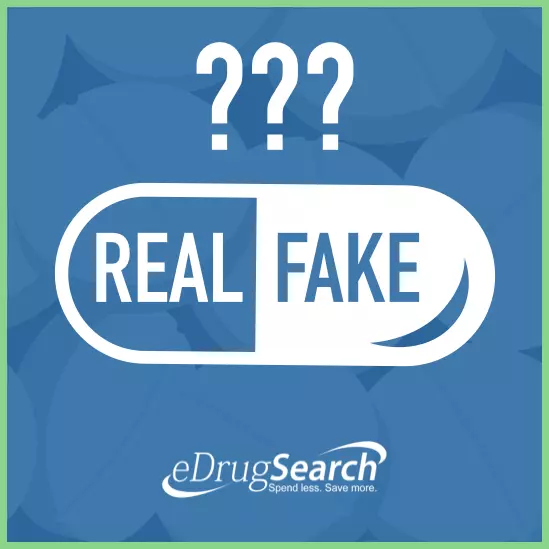
Pharmaceutical Companies Intellectual Property Rights
In the U.S., companies that bring a drug to market have exclusive sales rights for 20 years; only then can other companies create generic equivalents. However, other countries may only protect patented drugs for 10 years or less, or they may not protect patents at all. Due to differing property rights, some international online and mail-order pharmacies sell generic medications that are still under brand patents in the U.S. The FDA considers these generic drugs to be unauthorized for use in the U.S. This may or may not contribute to seizure when importing generic prescriptions.

